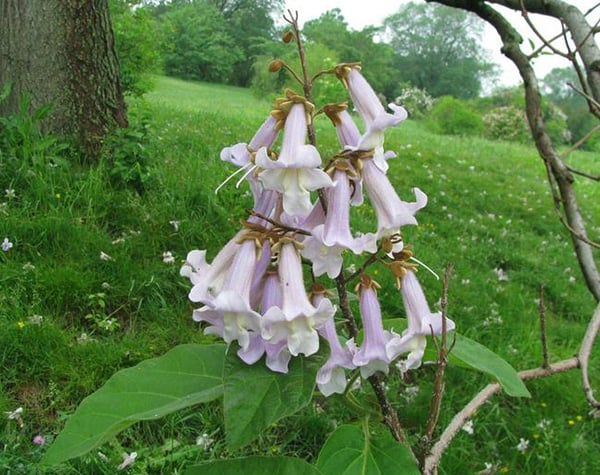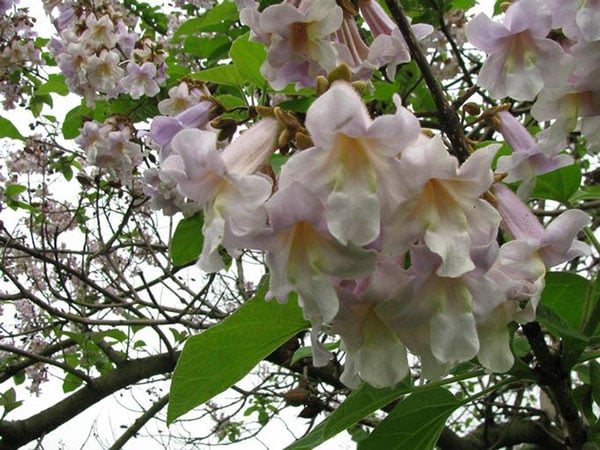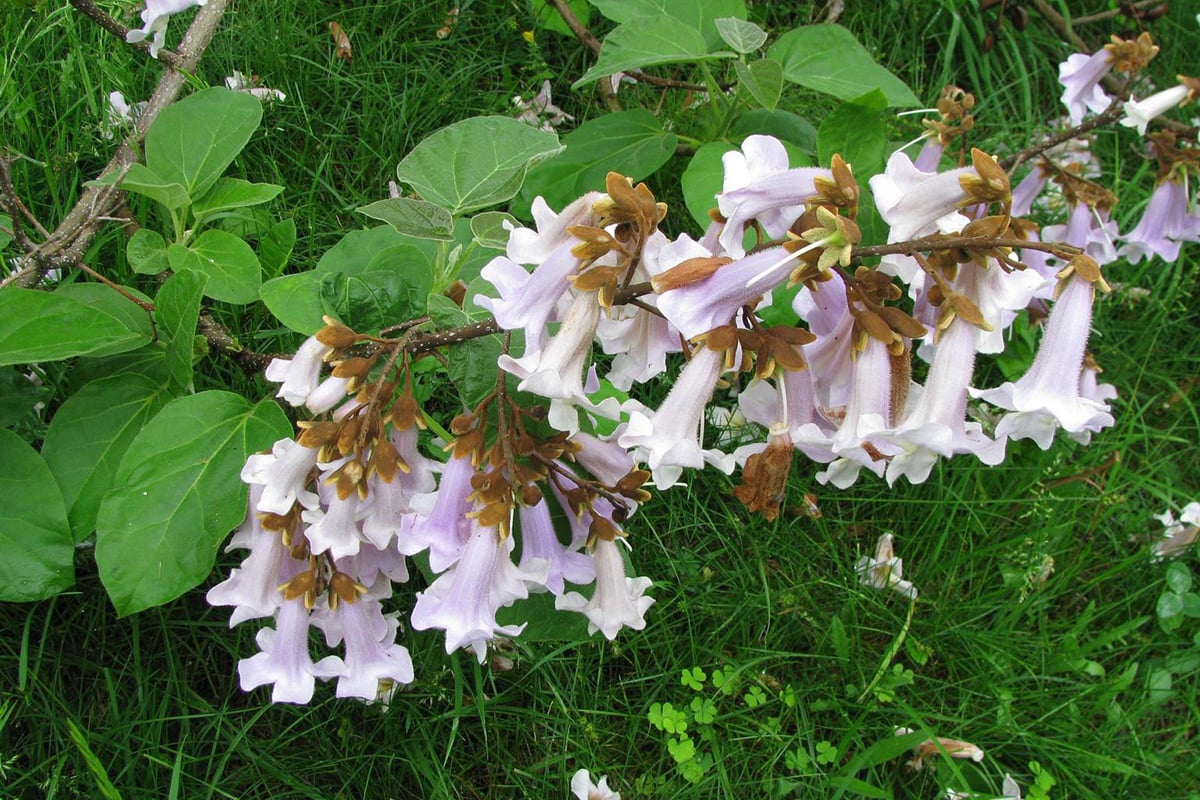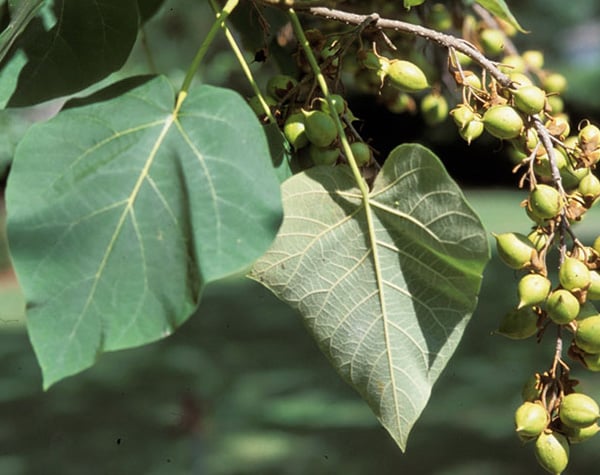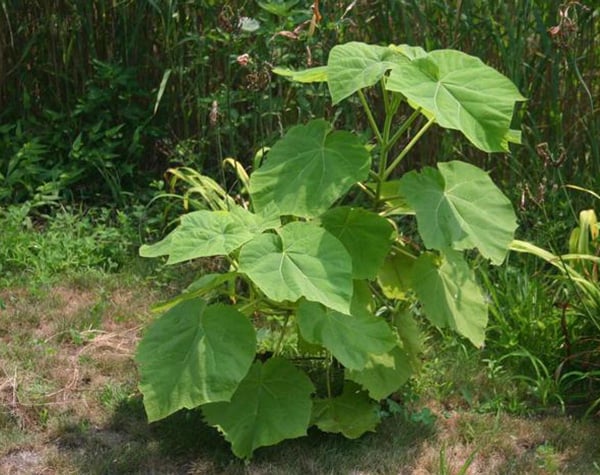Princess-tree
About Princess-tree
Princess-tree (Paulownia tomentosa) was imported from China as an ornamental plant. It has glossy twigs with white speckles, large leaves with hairy undersides, purple to white flowers, and fruits in clusters up to 2 inches long.
The Problem
Wind and water spread its seeds; it invades forests, stream banks, and rocky slopes, displacing native species.
The Solution
For seedlings and small saplings, hand pulling can work well. Be sure to remove the entire root system to avoid re-sprouting. You can cut larger saplings and trees, and then apply a systemic herbicide to the freshly cut stump to prevent re-sprouting and suckering (when new trees sprout from an older tree’s roots).
Girdling (removing tissue in a ring around the tree), followed by the application of a systemic herbicide to the girdle, can be effective for killing large trees. Always read and follow the directions on the label when using herbicide.
Pictures of Princess-tree
